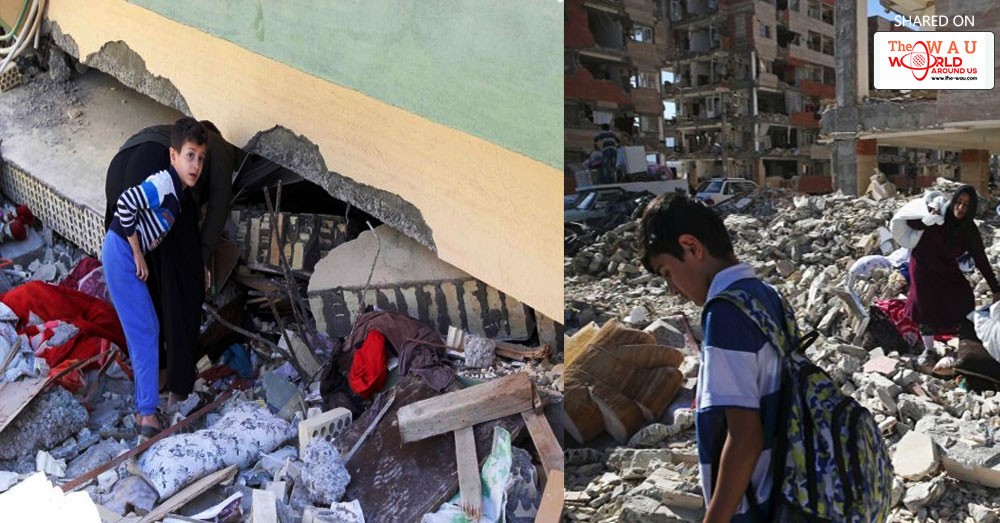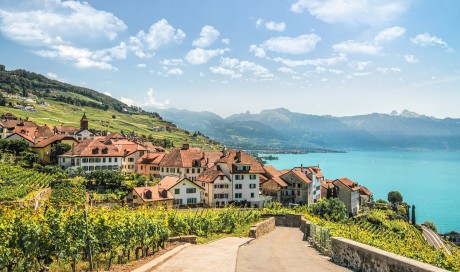Iranian officials called off rescue operations yesterday on the grounds there was little chance of finding more survivors from the quake, which killed at least 530 people and injured more than 8,000 people.
It was Iran's biggest earthquake in more than a decade and the deadliest earthquake of 2017 to date.
Survivors, many left homeless by Sunday's magnitude-7.3 quake that struck villages and towns in Kermansheh province along the mountainous border with Iraq, struggled through another bleak day on Tuesday in need of food, water, and shelter.
Iran has so far declined offers of foreign assistance to deal with the aftermath of the tremor, which officials said damaged 30,000 homes and completely destroyed two villages.
The US Government expressed condolences to the Iranian people despite President Donald Trump's "aggressive" policy towards the Islamic Republic, Iranian state media reported.
"We are hungry. We are cold. We are homeless. We are alone in this world," a weeping Maryam Ahang, who lost 10 members of her family in the hardest hit town of Sarpol-e Zahab.
"My home is now a pile of mud and broken tiles. I slept in the park last night. It is cold and I am scared."
Iranian Supreme Leader Ayatollah Ali Khamenei urged state agencies to speed up aid efforts. President Hassan Rouhani paid a visit to the stricken region, promising to resolve "the problems in the shortest time".
Thousands of people huddled in makeshift camps while many others chose to spend another cold night in the open because they feared more tremors after m ore than 200 aftershocks.
In some areas, no building was left standing and those that were had been deserted for fear they could come crashing down at any moment.
Houses in impoverished Iranian villages are often made of concrete blocks or mudbrick that can quickly crumble and collapse in a strong quake.
State television aired footage of weeping villagers carrying away bodies wrapped in bloodied blankets and bed sheets and scrabbling with their bare hands through rubble in search of friends and relatives.
"It was my cousin's birthday … all the relatives were there … like 50 people. But now almost all are dead," one resident Reza told reporters.
"We spent two nights in the cold. Where is the aid?" he added — he lost 34 members of his family on Sunday.
On the Iraq side of the frontier, nine people were killed and more than 550 injured, all in the northern Kurdish provinces.
'The quake didn't kill us, the cold weather will'

Television showed rescue workers combing through the rubble of dozens of villages immediately after the quake, but by yesterday Iranian officials said there was no longer any likelihood of finding survivors and called off the search.
Hospitals in nearby provinces took in many of the injured, state television said, airing footage of survivors waiting to be treated — hundreds of critically injured were dispatched to hospitals in Tehran.
Iran's Red Crescent said emergency shelter had been provided for thousands of homeless people but a lack of electricity and water, as well as blocked roads, hindered aid supply efforts.
"People in some villages are still in dire need of food, water and shelter," said Faramraz Akbari, governor of Qasr-e Shirin county in Kermanshah province.
State TV showed dozens of green and white tents dotting Sarpol-e Zahab, many containing two or three families — groups clustered around bonfires trying to warm themselves.

"It is cold. My children are freezing. We have water and food but no tent. The quake did not kill us but the cold weather will kill us," a woman in her 30s said.
The mayor of the city of Ezgeleh said 80 per cent of its buildings had collapsed — survivors desperately needed tents with elderly people and babies as young as a one-year-old sleeping in the cold for two straight nights.
"People are hungry and thirsty," a local man told ISNA news agency.
"There is no electricity. Last night I cried when I saw children with no food or shelter."
Iran is crisscrossed by major geological fault lines and has suffered several devastating earthquakes in recent years, including a magnitude-6.6 quake in 2003 that reduced the historic south-eastern city of Bam to dust and killed 31,000 people.
Share This Post















